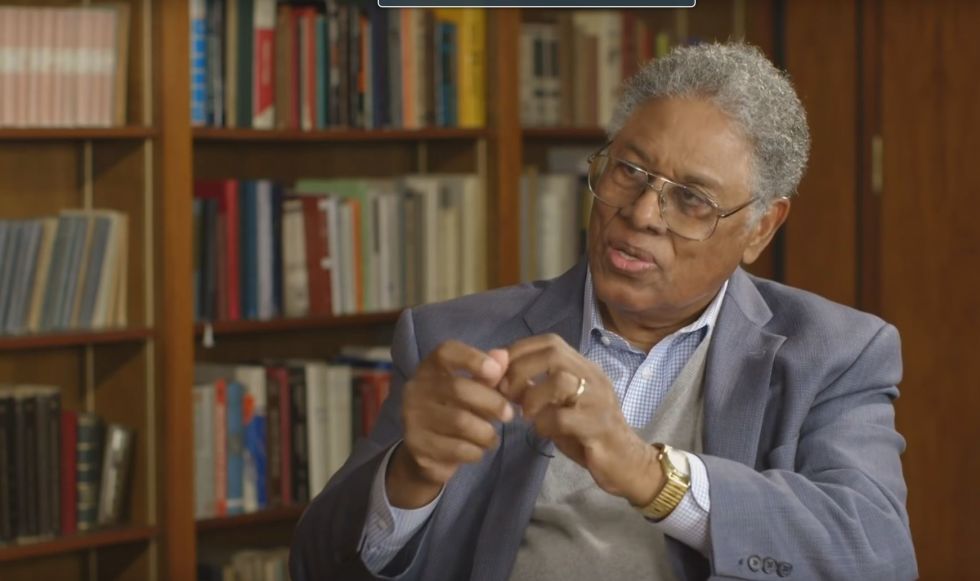Opponents of school vouchers have grown desperate in the wake of the Supreme Court’s refusal to outlaw vouchers as violations of the First Amendment. And desperation seldom produces clarity of thought.
It was particularly painful to read an outburst by Cynthia Tucker of the Atlanta Journal-Constitution, from whom better things might have been expected. According to Ms. Tucker, “Conservatives have been using poor black and Latino children as mascots in the voucher crusade for a decade.”
If black and Latino children are only being “used,” then what is the real ulterior motive? If you are not really concerned about minority — and other — children who are being shortchanged in our failing public schools, then what are you after? Is there fame, fortune or a political bonanza to be gotten by being for vouchers?
While some Republicans are strong supporters of vouchers, affluent suburban Republicans seldom share this enthusiasm, since they are content in their upscale communities with higher quality public schools and a private school option available should they want it. No big votes to be picked up there by pushing for vouchers.
Blacks are the strongest supporters of vouchers, but they vote overwhelmingly for Democrats anyway. No political gold at the end of that rainbow either. What about money, fame, sex, or any of the other rewards that tempt us into iniquity? Vouchers don’t seem like the royal road to those things either.
Cynthia Tucker warns us to “be wary of the right’s sudden interest in schooling poor children of color.” Milton Friedman originated the idea of school vouchers 40 years ago! How sudden is that? My own “sudden” interest in vouchers was publicly expressed back in the 1970s. So was that of many others.
If Ms. Tucker has only become aware of this recently, that is not the same as saying that it happened only recently. When she attributes interest in vouchers to efforts of “segregation academies” to get tax breaks during the Carter administration, she attributes what happened earlier to what happened later.
This side issue about segregation academies illustrates the problem of constantly fighting the battles of the past, when there are more than enough challenges to confront in the present. As Winston Churchill said: “If the past sits in judgment on the present, the future will be lost.” Hitler was behind the creation of the Volkswagen, but will you refuse to drive or ride in a VW because of that?
Finally, Ms. Tucker trots out the old and discredited idea that the amount of money represented by vouchers is not enough to enable poor parents to send their children to private schools. This must be news to those poor parents who have in fact been sending their children to schools — mostly religious schools — with the voucher that Ms. Tucker says will not get them into these schools.
If those opposed to vouchers think that the money is inadequate, then let them advocate that more money be spent! It is hard enough just to get limited voucher programs instituted, against the bitter political opposition of the teachers’ unions and the Democrats, much less to get enough money and enough vouchers. Finally, there is the teachers’ union dogma that bad education is due to the home, rather than the school. According to Cynthia Tucker: “The element that matters most in a child’s education is the experience at home, not the experience inside the classroom.”
There are many studies that refute this, but put that aside. Ms. Tucker goes on: “Poor children come from homes where parents have little education and sophistication; they are too overwhelmed or intimidated to attend parent-teacher conferences; they tend not to read to their children or take them to the zoo or museums.”
Why then do the same children of the same parents do better after they leave the public schools? Why are not only private schools but also charter schools able to get better results with these same children? Cynthia Tucker denies that this is so, which is the only viable position for her to take, but the facts say otherwise.
Lots of facts say otherwise about what many opponents of vouchers are now saying in their desperation.
Editor’s Note: CM believes there should be a complete separation between education and the state. As an interim measure, vouchers may serve this purpose depending on how they are implemented (the same principle applies to tax credits) by exposing the bankruptcy of the public school system.–MDC





